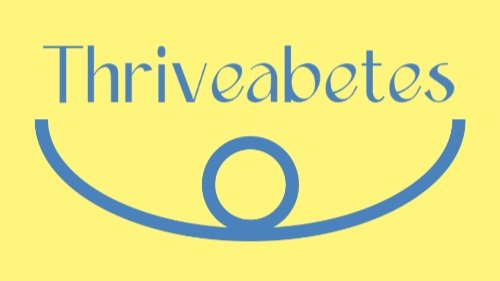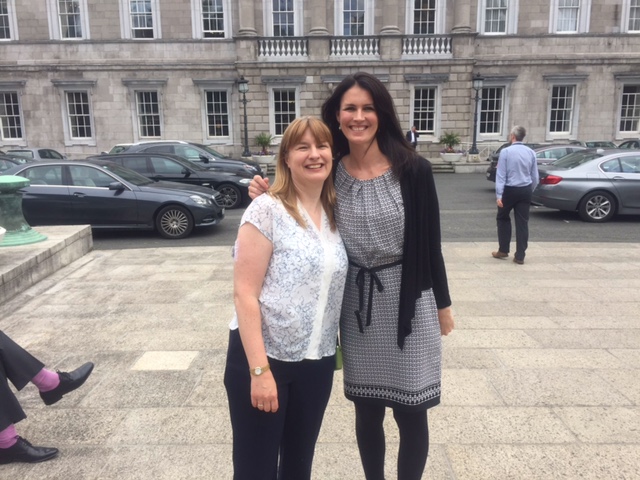 It’s Summer and it’s also the start of music festival season. This was kicked off with GunsnRoses in Slane Castle on Saturday 27th May. We have Longitude, Electric Picnic, Castlepalooza, yet to come.
You bought your tickets for the gig, sorted your transportation and accommodation, etc. One of the last things you will probably consider, if you even think of it at all, is having a plan for dealing with the restrictions placed on bringing in food and drinks to these events when you have type 1 diabetes.
It’s Summer and it’s also the start of music festival season. This was kicked off with GunsnRoses in Slane Castle on Saturday 27th May. We have Longitude, Electric Picnic, Castlepalooza, yet to come.
You bought your tickets for the gig, sorted your transportation and accommodation, etc. One of the last things you will probably consider, if you even think of it at all, is having a plan for dealing with the restrictions placed on bringing in food and drinks to these events when you have type 1 diabetes.
I would like to thank those who posted about this topic in the private “Diabetes in Ireland” facebook group. I asked posters if they would allow me to share their experiences for the benefit of new event go-ers or new to these restrictions. In particular, Sinead Murray who emailed the event promoters information to me.
The first thing you need to know about these events is that it’s standard practice, especially the ones where there are food and drink vendors inside, that people are NOT permitted to bring Food/beverages into the event.
At the recent concert in Slane Castle, it was “Strictly NO REFRESHMENTS IN HARD CONTAINERS (cans, plastic bottles, glass) – even those containing water / non-alcoholic liquids in them.” From Slane Castle's website.
What does this mean for people with type 1 diabetes who would need to carry fast acting glucose, which may be in liquid form and carb snacks for low blood glucose emergencies?
This means that unless you have thought to make arrangements that you will most likely not be allowed to bring in bottles of Lucozade, it will be confiscated. You will need to have a backup plan. And if you want to bring your Lucozade in with you either contact the event promoters or get a doctors letter that states that you need to carry food on you at all times. Plus, it's no harm to have the letter state that this includes Lucozade for medical emergencies.
Some of the posters who shared said they either didn’t bring any hypo supplies or food with them but bought some when they got inside the venue. Another poster said that they just brought whatever they needed in a small inconspicuous bag and had no issues. Another poster had Lucozade confiscated.
The first response from Slane Castle Event promoters was that if you had a doctors letter they would allow you to bring in food but still not in hard plastic containers and certainly no Lucozade. They also said that they would accept a copy of the correspondence. Later, this was followed up by a second email with a reversal on the Lucozade stance.
I have compiled some information on going to music festival from some other websites and here are a few recommendations as a person with type 1 diabetes. (Updated since I received some new information from a member of the diabetes online community on 31-5-2017)
Get a letter from your GP Yes, I know it’s a pain in the behind but if you get one letter you may be able to use it for a number of concerts and maybe for a number of years. Make sure that your letter states your need to carry food on you at all times.
The people on security will know NOTHING about diabetes - nothing relevant anyway. Don’t judge! And definitley don't bank on security being understanding. Explain with a “kill em with kindness” attitude that your food is only for medical emergencies. As a person with type 1 diabetes your blood sugars can go low and you need to treat it with fast acting sugar.
Contact Event Promoters
This is a really good idea because you may be able to avoid getting a letter from your GP and as a bonus you are education one customer service person at a time, maybe even a whole customer service department :-O, at a time. When you contact the promoters explain why that you carry medical supplies such as needles, insulin pens and also explain that you need to carry food and fast acting glucose on your person at all times. The event promoters will most likely respond with "the rules are the rules" email. However, I encourage you to respond to this email explaining again the medical neccessity of having food and fast acting glucose on your person at all times. At this point, the customer service person may get some outside advise and you will be exempt from the restriction.
Brush up on your Type 1 Diabetes and Alcohol knowledge
This goes without saying. Just google Alcohol and type 1 diabetes and you'll find loads of info on this.
And
Learn from the experience of others Here a couple of blog posts I found that give other useful information;
Diabetes.co.uk Festivals and Diabetes Guide
http://travelbetic.com/2016/04/06/type-1-diabetes-at-camping-music-festivals/
https://beyondtype1.org/your-type-1-guide-to-music-festivals/
Of course being of a certain vintage it’s not surprising that I had not come across this information before. I am so passed the days where I rocked out at concerts and most of what I remember was at Feile - The Trip to Tipp! (eye roll) in the 90’s.


